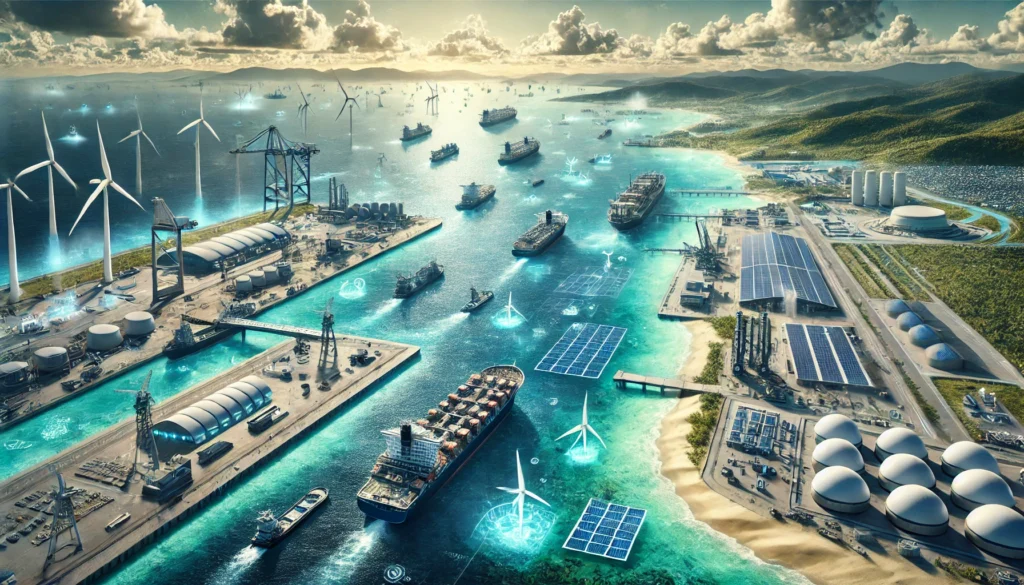The maritime technologies complex has become a cornerstone of innovation in marine-related industries, reshaping how we approach trade, defense, and modern marine applications. This advanced system integrates cutting-edge technologies to enhance efficiency, safety, and environmental sustainability across maritime operations.
The Growing Significance of the Maritime Technologies Complex
With the global economy heavily reliant on maritime trade, the maritime technologies complex has emerged as a game-changer. It facilitates streamlined shipping processes, improved navigation, and robust maritime defense strategies. Modern advancements, such as autonomous ships and advanced radar systems, are direct outcomes of this innovation hub.
Role in Marine Applications, Trade, and Defense
From improving cargo logistics to bolstering naval capabilities, the maritime technologies complex is pivotal. It enables nations to secure sea routes and maintain global trade stability. As marine industries continue to evolve, the complex plays a vital role in driving technological growth and sustainability.
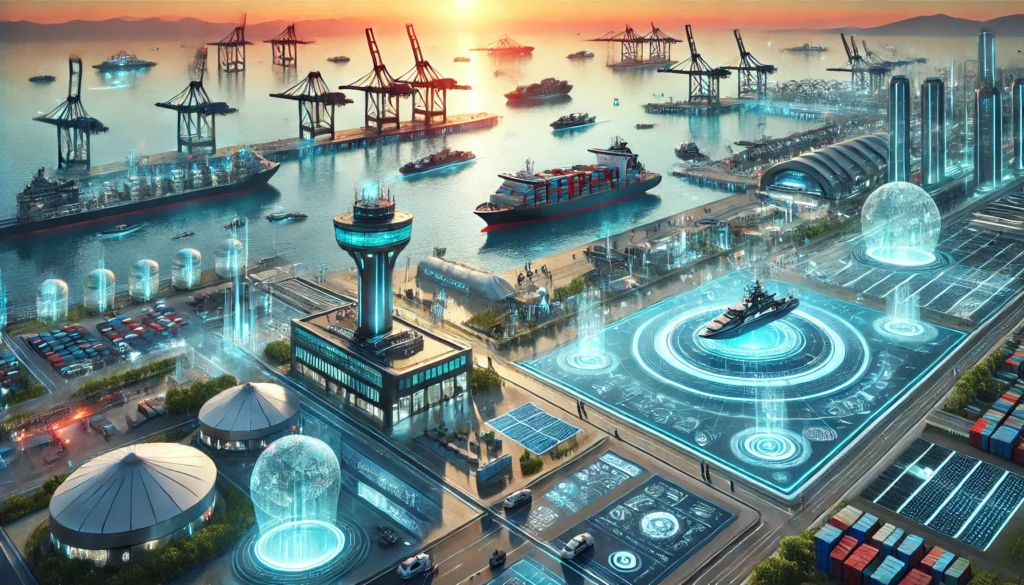
Understanding the Maritime Technologies Complex
The maritime technologies complex refers to the integrated systems and advancements that drive innovation in marine operations, exploration, and sustainability. This concept encompasses a range of technologies, from navigation and shipbuilding to marine resource extraction and oceanographic research. The scope extends across industries such as shipping, defense, energy, and environmental conservation.
Historically, the evolution of maritime technologies dates back to early shipbuilding and navigation tools like the astrolabe and compass. Over centuries, advancements have led to steam engines, radar systems, and modern autonomous vessels. Today, the maritime technologies complex incorporates cutting-edge innovations, including artificial intelligence, robotics, and green energy solutions, significantly improving efficiency and reducing environmental impact.
As industries evolve, the maritime technologies complex continues to play a crucial role in shaping global trade, defense strategies, and ocean sustainability, ensuring a thriving future for marine ecosystems and economies.
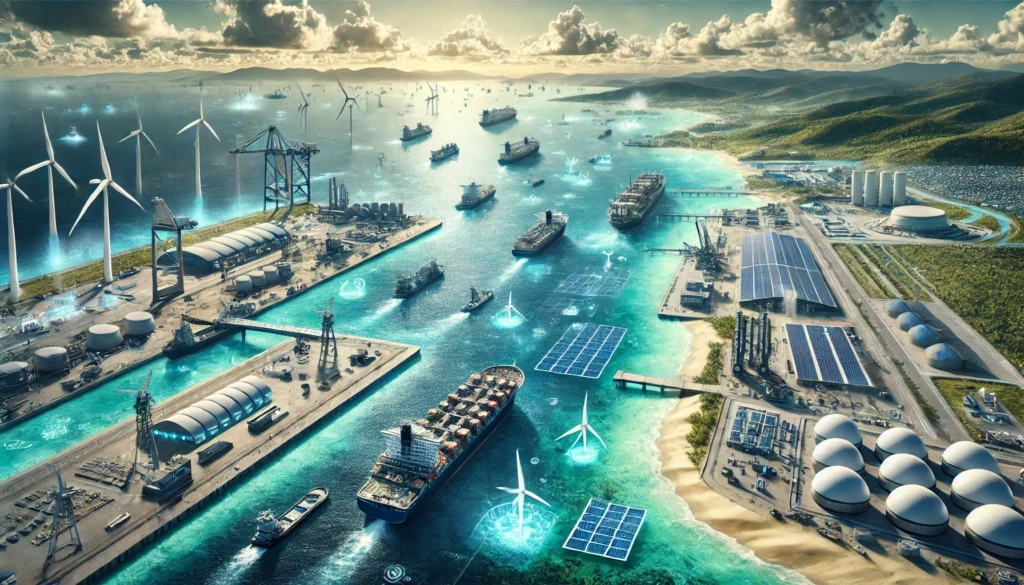
Why Maritime Technologies Matter
Maritime technologies are pivotal in shaping global trade, economic growth, and safety. These innovations, often referred to as maritime technologies complex, contribute significantly to various sectors.
Role in Global Trade and Economic Growth
The maritime industry facilitates the transportation of over 80% of global goods, underscoring its importance. Modern maritime technologies complex includes automated cargo handling, fuel-efficient vessels, and advanced logistics systems. These advancements ensure faster, cost-effective, and environmentally sustainable trade.
Impact on Marine Safety, Navigation, and Defense
Safety and defense rely heavily on the maritime technologies complex. From GPS systems enhancing navigation accuracy to advanced radars detecting threats, these technologies are indispensable. Innovations in marine defense, like unmanned underwater vehicles, play a crucial role in protecting territorial waters.
Key Components of Maritime Technologies Complex
Shipbuilding Innovations
The maritime technologies complex has revolutionized shipbuilding with advancements in design and materials. Modern ships now feature lightweight composites and eco-friendly propulsion systems, reducing emissions and enhancing efficiency. These innovations ensure sustainability and economic growth for the shipping industry.
Advanced Navigation Systems
Advanced navigation systems are central to the maritime technologies complex. These systems leverage GPS, AI, and real-time data for precise route optimization. Improved accuracy minimizes fuel consumption and enhances safety, making maritime operations more reliable and environmentally friendly.
Autonomous Vessels and Robotics
Autonomous vessels and robotics are pivotal to the maritime technologies complex. Robotic systems handle underwater maintenance, while self-piloting ships enhance operational efficiency. These technologies reduce human risk, offering innovative solutions for modern maritime challenges.
Marine Energy Solutions
The maritime technologies complex emphasizes marine energy solutions like wave and tidal power. These renewable sources contribute to global sustainability goals by reducing dependence on fossil fuels, supporting a greener future for maritime industries.
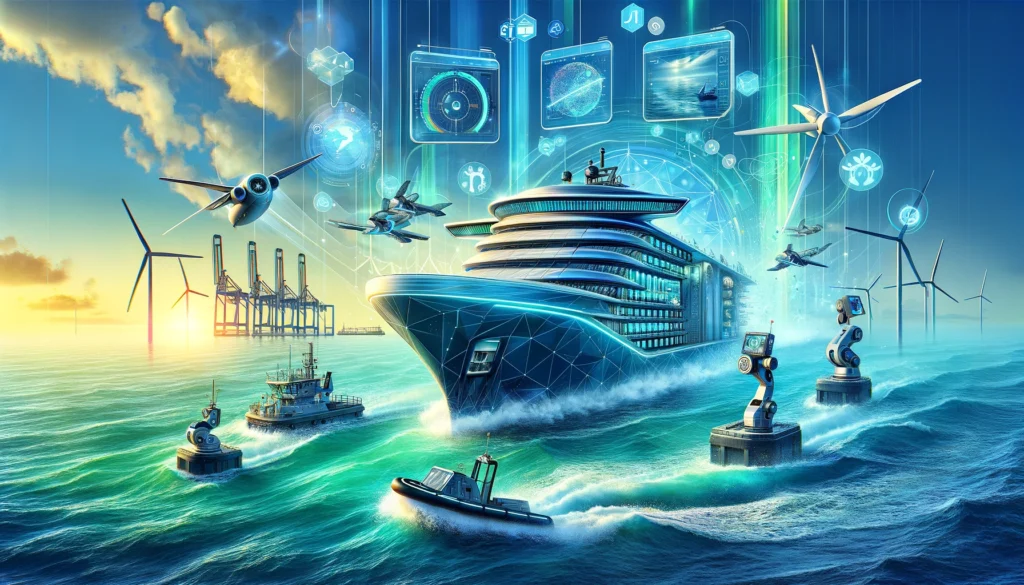
Latest Trends in Maritime Technologies
The rapid evolution of maritime technologies complex is reshaping the shipping industry, enhancing operational efficiency, sustainability, and safety. With innovations like smart shipping, green technologies, and robust cybersecurity measures, maritime operations are more advanced than ever, driving substantial change across the sector.
Smart Shipping and Automation
The integration of artificial intelligence (AI) and the Internet of Things (IoT) in maritime operations is revolutionizing the industry. Maritime technologies complex have enabled vessels to operate autonomously, optimize routing, monitor engine health, and improve fuel efficiency, streamlining operations in ways previously unimaginable.
Use of AI and IoT in maritime operations
AI and IoT are enabling real-time data analysis, predictive maintenance, and better resource allocation. Maritime technologies complex offer unparalleled opportunities for smarter decision-making, reducing human error and optimizing fleet management.
Benefits: efficiency, reduced costs, and enhanced safety
By automating routine processes and providing predictive insights, maritime technologies complex contribute to increased efficiency, significant cost reductions, and enhanced safety. Automation helps streamline vessel operations, while real-time data enables proactive maintenance and mitigates potential risks.
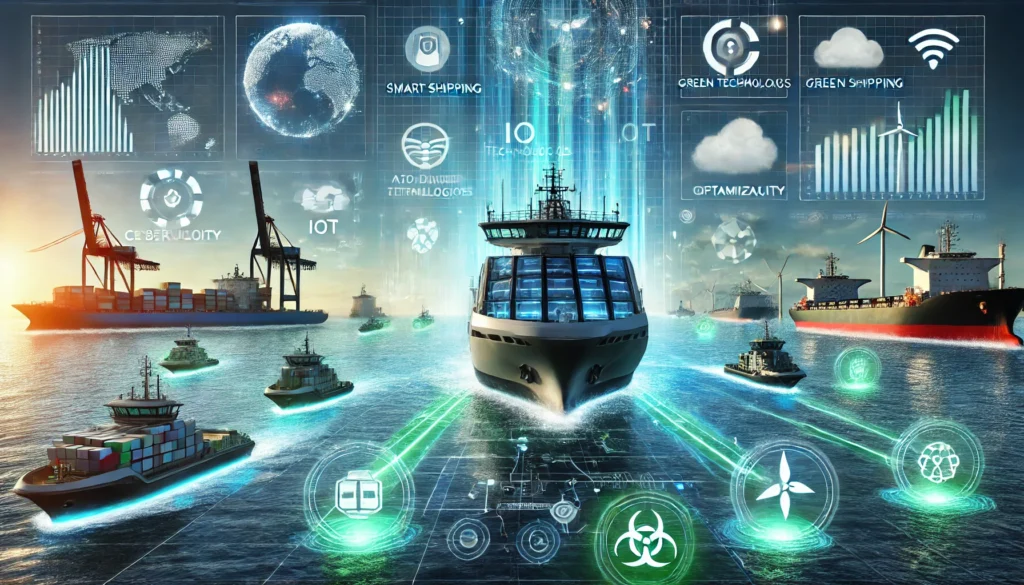
Green Maritime Technologies
As global environmental concerns intensify, the maritime industry is focusing on eco-friendly innovations. Green maritime technologies are essential for reducing the carbon footprint of shipping while maintaining operational effectiveness. Maritime technologies complex is now incorporating sustainable solutions to minimize environmental impacts across the supply chain.
Eco-friendly propulsion systems
Eco-friendly propulsion systems, including wind-assisted propulsion and hybrid engines, are gaining momentum in the maritime sector. These systems are powered by renewable energy sources, drastically reducing reliance on fossil fuels, and contributing to the growth of maritime technologies complex as sustainable solutions for the industry.
Role in reducing carbon footprints in shipping
Green technologies are vital in reducing carbon emissions from shipping vessels. By implementing sustainable propulsion methods and energy-efficient technologies, maritime technologies complex plays a crucial role in helping the maritime industry comply with international environmental standards while reducing its overall carbon footprint.
Cybersecurity in Maritime Technologies
The rapid digitization of the maritime industry has increased its exposure to cyber threats. Protecting digital maritime infrastructures is critical to prevent attacks that could disrupt operations, compromise data, and put ships at risk. Maritime technologies complex provides robust cybersecurity solutions to safeguard assets and data.
Protecting digital maritime infrastructures
The protection of digital infrastructures, including navigation systems, cargo tracking, and vessel communications, is paramount. As maritime technologies complex becomes more intertwined with digital networks, ensuring cybersecurity becomes a top priority to maintain secure, uninterrupted operations in the face of evolving cyber threats.
Case studies of real-world cybersecurity breaches
Numerous incidents, such as the NotPetya attack in 2017, highlight vulnerabilities in maritime technologies complex. These breaches demonstrate the critical need for robust cybersecurity measures to protect vital maritime systems from potential threats that could disrupt global trade and maritime operations.
Applications of Maritime Technologies Complex
Enhancing Global Trade
Maritime technologies complex plays a crucial role in enhancing global trade by optimizing shipping logistics. Faster and safer shipping routes, enabled by advanced navigation systems and real-time data, significantly reduce transit time and costs, benefiting international commerce.
The maritime technologies complex also plays an essential role in connecting markets across continents. By improving the efficiency of shipping networks, ports, and supply chains, these technologies facilitate smoother international exchanges and contribute to a more interconnected global economy.
Marine Environmental Conservation
A major focus within the maritime technologies complex is marine environmental conservation. Technologies such as automated waste collection and ocean monitoring systems are revolutionizing ocean clean-up efforts, making it easier to track pollutants and respond effectively to environmental threats.
Innovations in maritime technologies complex also aim to preserve marine biodiversity. Technologies like artificial reefs, underwater drones, and data analytics help scientists monitor ecosystems and mitigate the negative effects of overfishing, pollution, and climate change on ocean life.
Strengthening National Defense
Surveillance technologies in the maritime technologies complex are crucial for strengthening national defense. They enable real-time monitoring of maritime borders, providing vital intelligence for national security agencies to protect territorial waters from potential threats, including hostile ships or submarines.
Additionally, the maritime technologies complex plays an essential role in combating piracy and smuggling. Advanced radar systems, satellite tracking, and automated patrols provide security forces with the tools they need to monitor and respond to illegal activities in high-risk maritime regions.
In conclusion, the maritime technologies complex is indispensable in transforming global trade, environmental conservation, and national defense. These technological advancements foster safer, more sustainable, and efficient operations across the maritime sector.
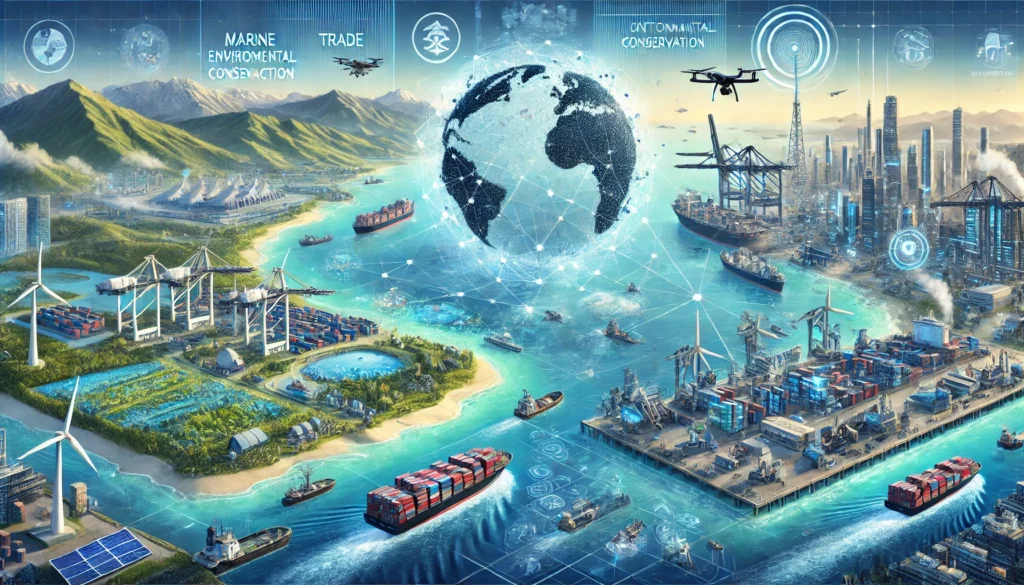
Challenges and Future of Maritime Technologies
Challenges
High costs of research and development
The development of maritime technologies complex is costly, requiring significant financial investment in research, prototype development, and testing. The high costs involved can be a barrier for smaller companies and limit the rapid advancement of technology in the maritime industry, affecting innovation and implementation.
Regulatory barriers across different countries
One of the significant challenges to maritime technologies complex is the variation in regulatory standards across countries. These inconsistent regulations can hinder international collaboration and the widespread adoption of new technologies, as companies must navigate multiple, often conflicting, regulatory frameworks, increasing costs and delays.
Environmental concerns related to resource extraction
As maritime technologies complex advance, there is growing concern over the environmental impact of resource extraction. Technologies that rely on deep-sea mining and the exploitation of natural resources can cause significant ecological damage, raising concerns about sustainability, environmental protection, and long-term viability in the maritime industry.

